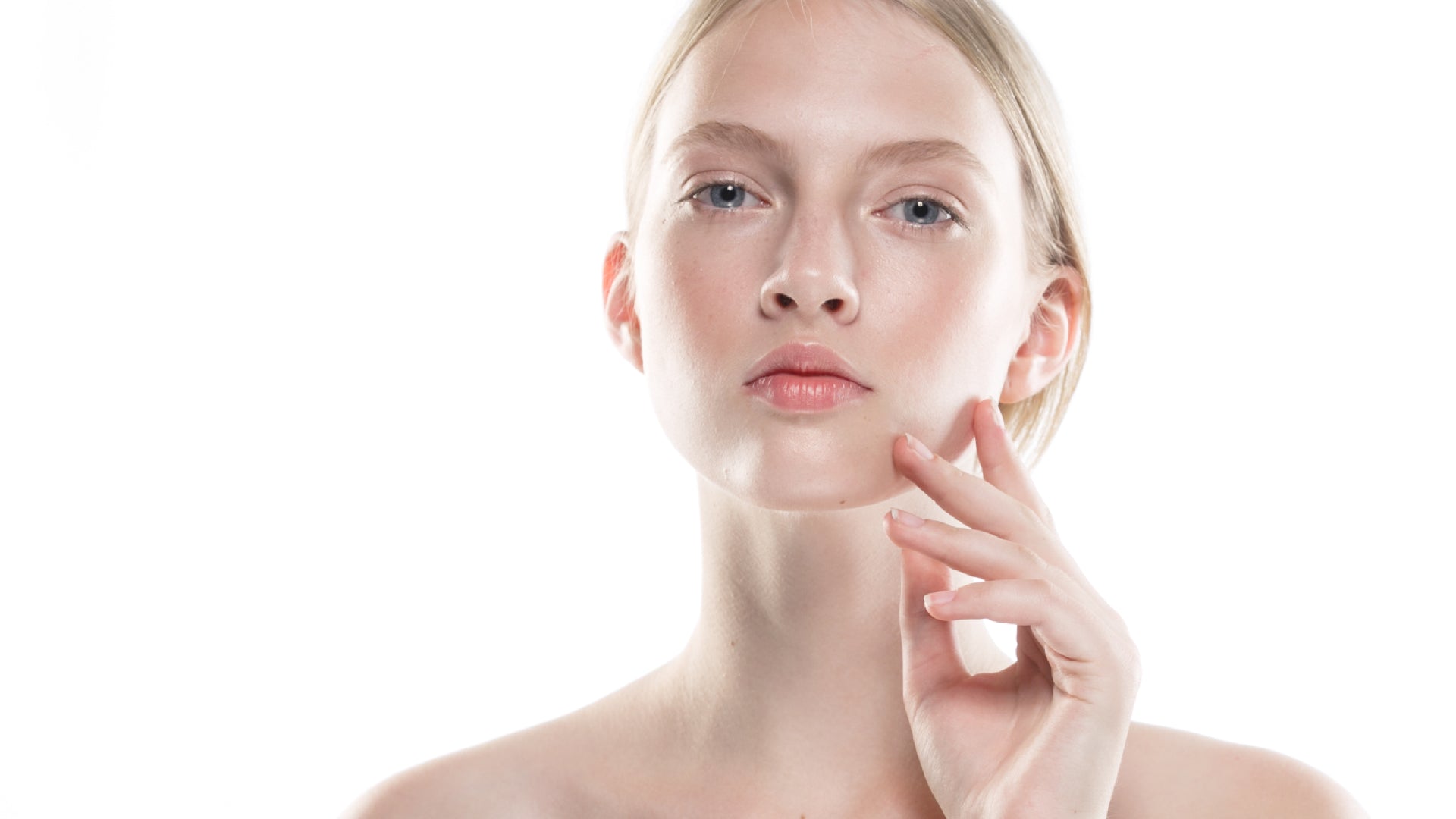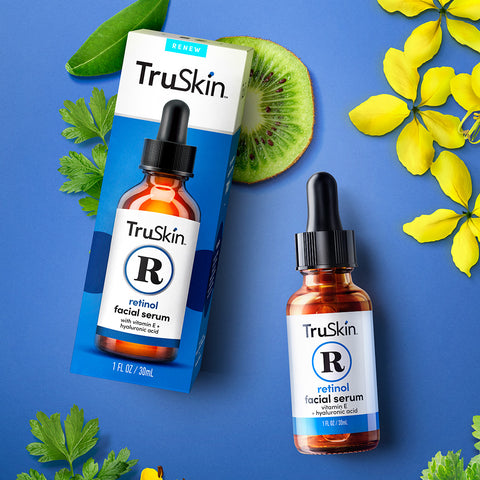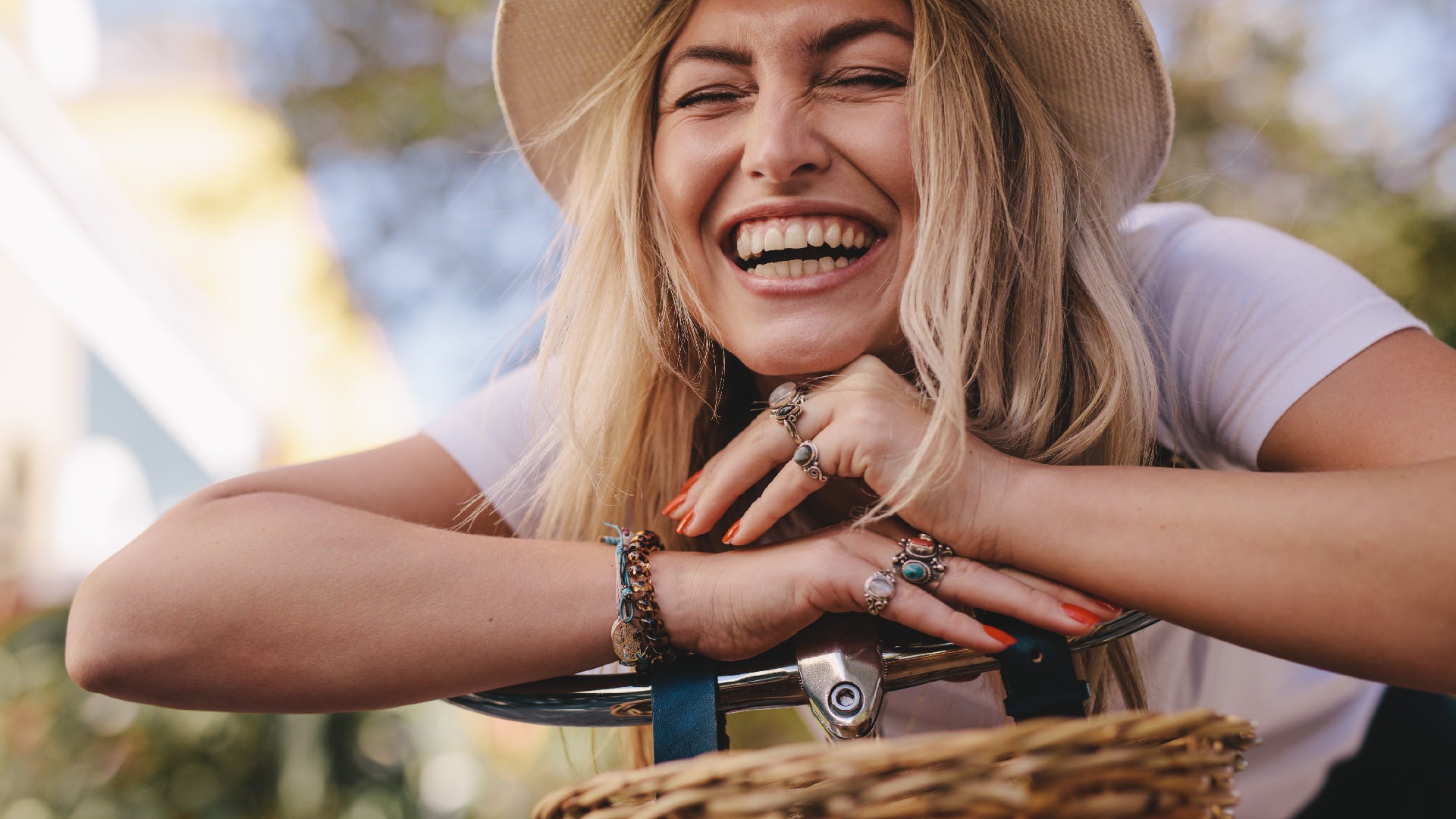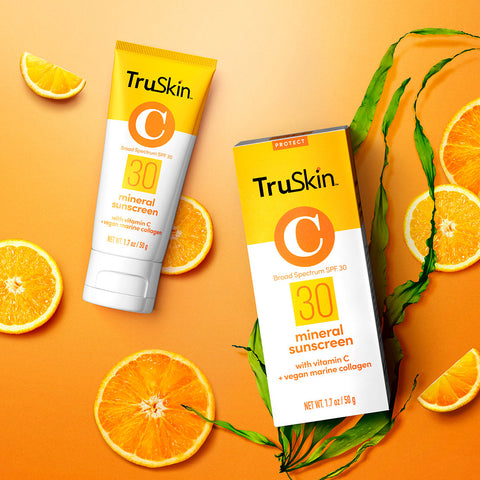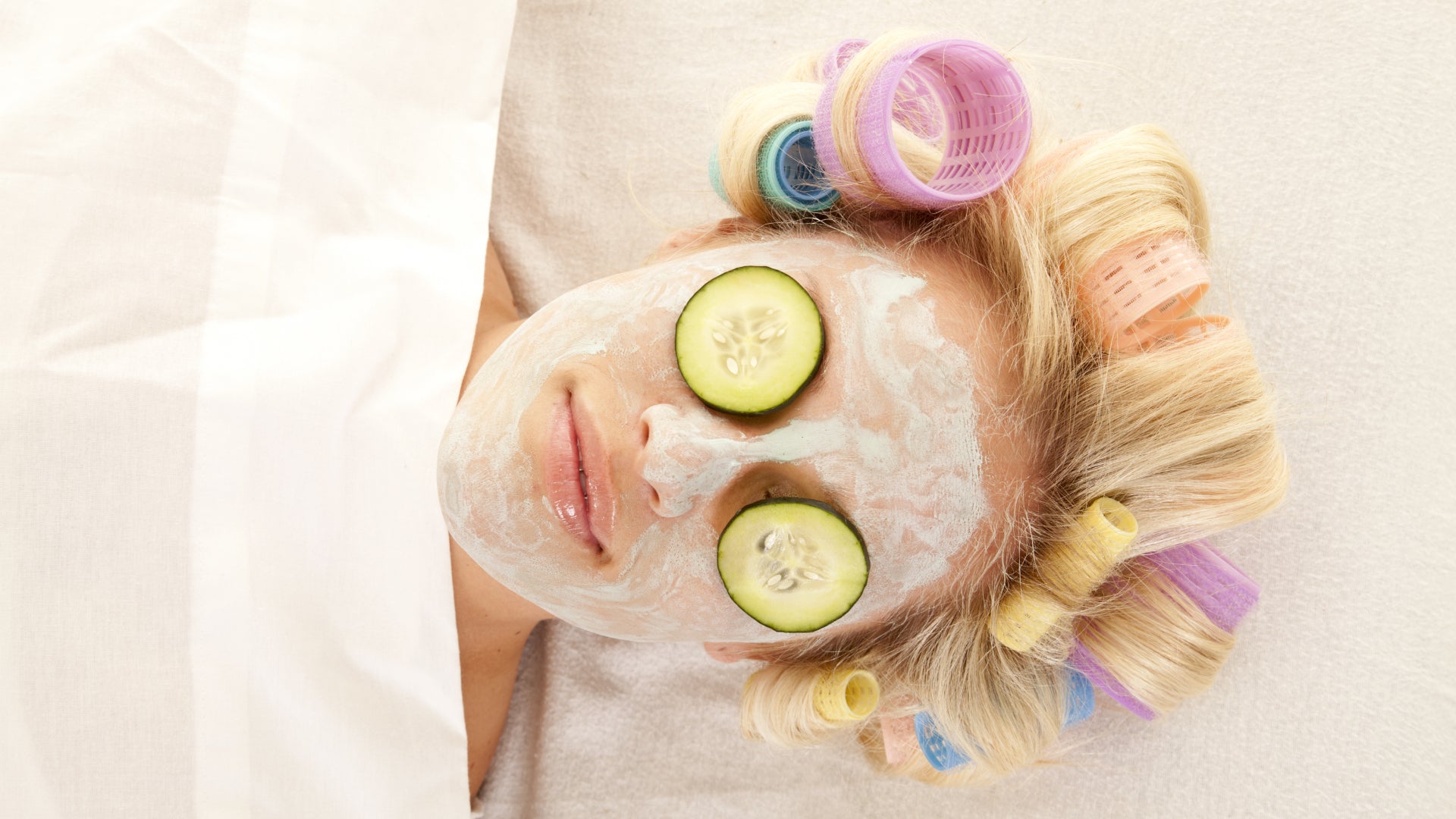
True Radical Honesty From Our Community
What To Do If You Hate Those Fine Lines Around Your Lips
Read MoreAdvice for all of your skin care needs
- all articles
- Acne
- Anti-Aging
- Collagen
- Combination Skin
- Company Announcements
- dry skin
- Exfoliation
- Eye Care
- Facial Redness
- Grooming
- Holidays
- Hyaluronic Acid
- Niacinamide
- Oily Skin
- Retinol
- Sensitive Skin
- Skincare
- Skincare Guide
- Skincare ingredients
- Skincare Routine
- Skincare Tips
- Sun Protection
- Toner
- Vegan Skincare
- Vitamin C
- view all
- Acne
- Anti-Aging
- Collagen
- Combination Skin
- Company Announcements
- dry skin
- Exfoliation
- Eye Care
- Facial Redness
- Grooming
- Holidays
- Hyaluronic Acid
- Niacinamide
- Oily Skin
- Retinol
- Sensitive Skin
- Skincare
- Skincare Guide
- Skincare ingredients
- Skincare Routine
- Skincare Tips
- Sun Protection
- Toner
- Vegan Skincare
- Vitamin C
-
Neck aging is very real, so read on for some of the best skincare products for delaying fine lines, wrinkles, dryness and sagging skin on your neck.
Are you guilty of giving the skin on your neck zero attention? Warning: fine lines, wrinkles, dryness and sagging skin can creep up on your neck lightning fast. One day you’re lovingly enjoying your youthful-looking skin then before you know it, ‘bam!’ your neck looks 75 on your 45th birthday.
Why does the skin on your neck age so visibly and swiftly? Well, other than the fact that it often lacks the care and attention it deserves (entirely your fault, btw!), the structure of neck skin is also slightly different to your face. It’s thinner, for starters, which makes it more delicate and susceptible to the slings and arrows of everyday stressors like UV radiation and pollution that break down collagen and elastin and cause premature wrinkling, crinkling, crepiness and sagging. The skin on your neck also contains fewer sebaceous glands which means it lacks the sebum necessary to combat dryness and keep it soft, strong and lubricated.
But that’s not all because it doesn’t help that we’ve become a nation obsessed with our smartphones. So what, you may ask? Well, hours spent looking down whilst you scroll through YouTube videos can lead to all manner of neck, back and posture issues,. The most common and obvious to the naked eye? Horizontal bands around the neck, aka neck wrinkles or ‘tech neck.’
The good news is there are plenty of ways to deal with neck lines and wrinkles – most of which are covered right here. And our favorite? An awesome skincare routine that doesn’t stop when you reach your chin.
To follow, five of our most effective products for staying one step ahead of fine lines, wrinkles and sagging neck skin.
1. SPF 30 Mineral Sunscreen Facial Serum
We’re massive fans of treatment serums here at TruSkin and the newest addition to our serum family is a real beauty for both the face and the neck. A multi-faceted product, SPF 30 Mineral Sunscreen Facial Serum is a serum with bells on, delivering the antioxidants powers of vitamin C (or sodium ascorbyl phosphate, to be precise), alongside a broad-spectrum, all-encompassing SPF of 30 – the dermatologist-recommended level for everyday damage control. We hate to brag too much but it’s pretty much the sun protection product you’ve always dreamed of.
The thing is, though, sun protection isn't just for the face. Unless you wear scarves and turtle necks every day of your life, your neck is exposed to the elements just as much as the skin on your face, making daily SPF protection an absolute must. Also, as you now know, the skin on your neck is thin, fragile and vulnerable to premature aging so a treatment serum is going to work wonders for preserving your collagen and delaying wrinkles and a lack of firmness in the area. Simply smooth an extra drop over the neck area when you apply it to your face – after cleansing and before moisturizing. Simple.
2. Renewing Longevity Moisturizing Cream
One of the most effective ingredients for aging skin is undoubtedly retinol (more on that in a minute). However, certain types of sensitive skin don’t play well with this potent ingredient. The skin on the neck can also feel even more sensitive than that on the face, so what’s a good alternative for tackling lines and wrinkles when retinol is not a viable option? Bakuchiol.
Touted as nature’s alternative to retinol, bakuchiol offers all the same skin-rejuvenating benefits… but with fewer of the common side effects like redness, irritation and dry skin. We harness the powers of this excellent botanical in our Renewing Longevity Moisturizing Cream. Combined with hydrating aloe vera, soothing vitamin E and revitalizing snow algae it’s a winner for the face and neck area. Apply it morning and night after your serum using upwards motions to help lift and tighten the skin.
3. 6% AHA, BHA + PHA Liquid Exfoliant
As you know, a fabulous way to improve cell turnover and enhance the look and feel of your skin is to exfoliate regularly. Exfoliation encourages dead skin cells to slough away, enabling the fresh, healthier-looking ones to reveal themselves at a surface level. Of course, your skin cells do this naturally, but as you age, the process becomes slow and sluggish, allowing the old cells to sit around longer than you’d like. This can cause all sorts of issues like clogged pores, breakouts, rough texture and dull, lackluster-looking skin.
To help keep cell turnover ticking along at a decent rate, it’s smart to exfoliate two or three times a week, depending on your skin’s tolerance levels. Our 6% AHA, BHA + PHA Liquid Exfoliant is a real winner for smoothing over your neck because, instead of using physical grains which might not suit this delicate area, it’s crafted with non-abrasive glycolic acid, salicylic acid and gluconolactone, which break down the bonds between dead cells so they fall off on their own accord. Extra vitamin C also helps to brighten and protect the skin. Bonus.
4. Retinol Facial Serum
OK, back to retinol which is pretty much the queen of collagen-stimulating skincare ingredients and consistently seen as ‘the one’ for anybody over the age of 30 who’s looking to age beautifully… but not prematurely.
A derivative of vitamin A, retinol is indisputable in its powers to encourage cellular turnover and improve quality collagen in the skin. Granted, it’s not for everyone (which is where other ingredients like bakuchiol, peptides and vitamin C step in to save the day), but if you choose your formulation wisely, patch test first and go slowly, most people are able to incorporate retinol seamlessly into their skincare regime.
Our Retinol Facial Serum, for example, is super gentle on the skin because it’s partnered with hyaluronic acid and vitamin E to hydrate and help reduce irritation. It’s so good you can even apply it to the delicate skin on your neck. Just remember, the neck area can be prone to dryness and itching so apply it to this area just once or twice a week to clean skin before bed, then increase frequency only as tolerated – if at all.
5. Vitamin C Deep Hydration Night Cream
Vitamin C is the most studied and widely used topical antioxidant in skincare. And antioxidants are crucial for aging skin because they reduce oxidative stress. What’s that exactly? Good question. Oxidative stress is the damage caused by environmentally induced free radicals which, if left to their own devices, like to seriously screw up your collagen, thus accelerating the formation of wrinkles.
After cleansing at night, our Vitamin C Deep Hydration Night Cream is an absolute dream on the face and neck because it works hard to neutralize those pesky free radicals and help reduce the appearance of neck wrinkles, face wrinkles, and other signs of aging. It also contains MSM, vitamin B5, aloe vera and a whole bunch of other skincare darlings, providing your face and neck with everything it needs to wake up smoother, softer, full of life and ready to face the day.
Our Favorite Products For Tackling Neck Wrinkles
read more -
Turning 50 is a pretty big deal for your skin so get ahead of dryness, dehydration, wrinkles and dark spots with these skincare strategies that truly work.
When you combine decades of natural aging with the added stress of sun exposure, hormonal changes, environmental pollution and questionable lifestyle habits it’s no wonder that skin needs help as you reach your 50s and beyond. As natural aging goes, skin undergoes significant changes when you hit 50. Collagen production decreases annually by around 1 percent – and, btw, this may have started as early as age 20! – while menopausal hormones often lead to thinner skin, decreased sebum production and a compromised barrier function. Cue dryness, sagging and sensitivities to name just a few.
Then there’s the rate at which your skin turns over which significantly slows down in your 50s. As a younger adult, the life cycle of your skin usually sits around the 28 day mark, during which time skin cells form, move up to the surface, then die and slough away. In your 50s, however, this 28-day life cycle can extend to more than 45 days which allows dead cells to hang around at the surface for way too long, making your skin look dull, gloomy and feel rough to the touch.
Couple all this with elastin fiber degeneration, an increase in transepidermal water loss and accumulated sun damage and, well, it’s a wonder your skin looks as fabulous as it does.
On that note, let’s not forget what an absolute privilege it is to have reached the age of 50 – wrinkles and all. So let’s celebrate your mature skin by ensuring you’re following a few important steps to help soften the signs of visible aging. Because, we don’t know about you, but we’re all for that.
1. Focus On Hydration
As you age, skin loses its ability to hold on to moisture. Why does this happen? Well it’s mainly down to the skin’s barrier function whose job it is to repel irritants and allergens while retaining the optimal levels of moisture to keep your skin soft, supple and healthy. The protective barrier is made up of around 20 brick-like layers of cells, all ‘glued’ together by important substances like cholesterol, ceramides and fatty acids.
Your barrier function is fantastic at its job… until it’s not. For example, the natural aging process causes it to lose vital ceramides which makes it become thinner, weaker and less able to retain water. This means you have to give it a helping hand to help your skin stay moisturized and hydrated. And the best way to do this? Simple. Invest in products that are rich in humectants like aloe, hyaluronic acid and glycerin as these absorb moisture and plump up the skin. A great trick is to apply a hydrating toner like Ocean Minerals Super Toner or a serum like Hyaluronic Acid Facial Serum to damp skin, layering it underneath your moisturizer to lock all that delicious hydration into your skin.
2. Take Extra Care When You Cleanse
Harsh cleansing is a killer on the skin’s barrier function which you have to really, like REALLY look after as you reach age 50 and beyond. Whatever your skin type, choose the gentlest formulation possible and, if nothing else, avoid synthetic fragrances, strong alcohols, dyes and harsh surfactants like SLS and SLES as these can cause irritation and dryness. Skin becomes drier and more fragile as it matures so unnecessary chemicals are a big no-no.
Of course, cleansing is still a crucial part of your daily routine as it helps remove surface debris which reduces your chances of breakouts (because yes, adult acne is a thing). Just don’t go wild with products that strip your skin because these will either cause excess dryness or excess sebum depending on your skin type. Instead, choose a product that cleanses thoroughly, but doesn’t suck all the life from your skin – it just removes the bad stuff. We love Vitamin C Brightening Cleanser.
One final word on cleansing: hot water is seriously bad news so stick with lukewarm water as you cleanse to avoid stripping your barrier of important oils.
3. Exfoliate Weekly
Remember the chat about the life cycle of your skin slowing down as you age? That is no joke and leaving dead skin cells to build up at the surface will totally screw up your complexion.
One word: exfoliation.
Exfoliation is non-negotiable for 50+ skin as it removes buildup and accelerates cell turnover, allowing younger, fresher, brighter skin to come to the surface. There’s a definite sweet spot, however because too much of a good thing can upset the delicate balance of your skin, potentially causing micro tears and exacerbating sensitivities.
Our advice is to start slowly, using Vitamin C Gentle Face Scrub on a weekly basis. Most skin types should be able to tolerate a weekly exfoliation session if you go carefully and don’t rub at your skin too much. And if you reckon you need more and your skin can take it you can always up the frequency to two or three times a week. Just remember to use a delicate touch and to rinse thoroughly with lukewarm, never hot, water.
4. Protect Your Skin Every Day
OK, this is a biggie so listen up. No matter your age, gender, skin color or skin type, you simply have to protect your skin from that devilish ball of fire in the sky called the sun. Every day of the year. We know it can be tedious to apply sunscreen but nothing is more damaging to your skin than exposure to UV radiation.
To make it more bearable we created a lightweight, sun protective SPF 30 Mineral Sunscreen Facial Serum that shields your skin from both UVA and UVB rays. This means you don’t need to slather on that extra layer of cream at the end of your routine, you simply smooth this beautifully wearable serum over your skin before moisturizing and hey presto, you’ve got immediate SPF 30 coverage thanks to zinc oxide, combined with superpowered antioxidants, emollients, vitamins and botanical extracts.
Prefer to go down the more traditional sunscreen route? No problem: try our award-winning SPF 30 Mineral Sunscreen with Vitamin C which provides everything your skin needs to prevent early wrinkles and dark spots.
Sunscreen isn’t the only way to defend your skin from the harmful effects of the sun, however. Topical antioxidants also provide environmental protection, working hard to neutralize pesky free radicals while hydrating, brightening, firming and all sorts. In our opinion vitamin C is the most superior antioxidant but other goodies include green tea, vitamin E, niacinamide and retinol.
5. Become Well Acquainted With Retinol
There’s no arguing the fact that retinol remains the gold standard in aging skincare. Extensive clinical research prove its efficacy and its visible benefits simply can’t be denied. Both prescription tretinoin and over-the-counter retinol have been shown to penetrate the skin at a deep cellular level, helping to stimulate collagen synthesis, improve turnover and assist with healing. All of which 50+ skin needs in abundance.
If you’re yet to get on board with this powerhouse there’s no time like the present. Don’t get us wrong, it won’t turn back the hands of time, but it will give your skin the best chance to look and feel its absolute best. Ditto bakuchiol which is retinol’s gentler, natural alternative.
A few things to remember when introducing retinol into your routine for the first time…
* Always patch test first to reduce the risk of irritation.
* Don’t overdo it. Take it slow to begin with then increase your usage over time. This’ll help your skin to acclimate.
* Remember, mild side effects like temporary redness and slight tingling are OK; pain or burning are not. If you experience the latter reduce usage, stop completely or try a bakuchiol serum like Rejuvenating Longevity Serum.
* Daily SPF is EVEN MORE important than ever.
* Patience is key. Retinol and bakuchiol take time to deliver so don’t give up if you don’t see results immediately. Trust us, you will in a few months.
Recently Turned 50? Then You’ll Love These Skincare Tweaks
read more -
As skin ages it inevitably becomes thinner, drier, more delicate and less springy. Sounds familiar? Then here’s how to take charge of your aging skin.
Let’s face it, your skin is not what it used to be. When you smiled in your teenage years, there were likely very few fine lines around your eyes, right? And during your 30s your skin was probably way more glowing, firm and plump than it is now (even if you weren’t aware of it at the time!).
It’s a fact of life, once you hit your mid-40s and beyond, your skin undergoes significant changes that alter its youthful look and feel.
What Happens To Your Skin As You Age?
According to the National Institute on Aging, as skin ages the outer layer gets thinner, paler and less stretchy. This is mainly due to the skin losing collagen and elastin at a rate of knots. As you know, these proteins are vital for maintaining strength, structure, support and elasticity in the skin. You're born with tons of the stuff which is why young skin is so plump and soft. Once you hit your mid-20s, however, most people start to produce 1 percent less collagen every year which results in visible wrinkles and sagging. Cell turnover also decreases, while hyaluronic acid and sebum production naturally slow down, further contributing to the dryness, dullness, uneven skin tone and consequent wrinkling of mature skin.
It's basically all downhill from the day you hit your 21st birthday!
OK, so it’s not that bad, but in all fairness, time does a real number on your skin. And when you factor in everything else you throw at it, including exposure to UV radiation, pollution, stress and poor diet choices, the health of your skin is going to really feel the hit.
The good news is that if you employ smart skincare practices, skin can radiate with health – whatever your age. Full disclosure: it’s unlikely to look porcelain-clear and as smooth as a baby’s bottom without more serious professional treatments that involve needles and surgery, but if you set yourself realistic goals, you will not be disappointed by what an effective skincare routine can achieve.
Our Essential Skincare Routine For Mature Skin
Great skincare isn’t about erasing every single sign of aging. It’s about keeping your skin healthy, glowing and functioning at its very best. So let’s see what you can do to help your skin be the most radiant version of itself at this ripe age, shall we?
First, Know That Simple Skincare Is Best
Harsh skincare ingredients like denatured alcohol, strong synthetic fragrances and butt-kicking sulfates are mature skin’s nemesis. How so? Because they strip away natural oils and other vital nutrients from the skin’s very important barrier function. Your barrier function helps your skin to retain moisture while protecting it from external aggressors so it’s super important, especially as you age and it naturally becomes compromised.
Stick with kind-to-skin ingredients in your routine and look out for products specifically formulated for sensitive or mature skin as these will contain fewer strong ingredients that have the potential to dry out or irritate your skin. Start right with a super gentle cleanser, but make sure you cleanse morning and night to reduce pore-clogging build-up on the surface of your skin. Our Soothing Cleansing Milk is a must.
Embrace Retinol: The Queen Of Aging Skin
When it comes to ingredients you should look out for, there are many greats out there. Vitamin C, for example, is awesome for improving dull, uneven-looking skin while peptides are fantastic for boosting your collagen and elastin supplies. Niacinamide is a fabulous antioxidant that’s gentle on the skin and helps to strengthen the skin’s barrier.
But by far the most recommended ingredient for aging skin is retinol. An all-round, skin-improving powerhouse, retinol has been studied for decades. And it’s proven to work. By communicating with your skin at a cellular level, retinol is known to boost healing and rev up the production of collagen and elastin which accelerates cell turnover and strengthens your skin while improving elasticity, suppleness, tone, texture, the works. It even helps decrease acne breakouts. Yes, it’s that good.
We love our Retinol Facial Serum but if you don’t get on with retinol try Rejuvenating Longevity Serum which contains bakuchiol, nature’s gentler-but-just-as-good alternative.
Try A Collagen Supplement
As you will have now gathered, collagen is a major player in the structure and strength of your skin, and a very effective way to help improve depleted supplies as skin ages is with a collagen supplement.
Our Collagen Boosting Skin Supplement is formulated with vegetarian collagen only (that’s important because not all brands are) and safely helps to improve your skin’s natural production of quality collagen. It makes for a great addition to your daily routine and requires zero effort and time. No brainer, right?
Never Leave The House Without Applying SPF
This applies to skin at any age but as you get older sunscreen is absolutely, no questions asked, the most non-negotiable step in your morning skincare routine. In fact, a broad spectrum SPF 30 sunscreen is widely known to be the single most effective product for reducing the visible signs of premature aging.
If you don’t fancy adding another step to your morning regime you HAVE to try our new SPF30 Mineral Sunscreen Facial Serum which is super sheer and goes on before your moisturizer making it the easiest way to safeguard your skin from UV damage.
Make Moisture A Priority
Skin loses valuable moisture as it ages and its protective barrier gets thinner and weaker. It’s imperative, therefore, to ensure you do everything you can to pump moisture back into the skin. Drinking plenty of fluids is crucial but as is using your skincare routine to layer on hydration.
Look out for ingredients like hyaluronic acid, aloe and glycerin in everything from your toner to your serum and moisturizer. These draw water to the surface of your skin like magnets. Just make sure your moisturizer also contains ingredients that lock all that hydration into your skin. Things like shea butter, vitamin E, ceramides and jojoba oil are your best bet.
Try Vitamin C Brightening Moisturizer which also works to brighten dull, uneven skin with the gentle but mighty sodium ascorbyl phosphate (a derivative of vitamin C).
Boost Cell Turnover With Gentle Exfoliation
Remember all that talk about cell turnover slowing down as you get older? Exfoliation helps to speed things up by actively removing dead skin cells so the newer, fresher ones have no choice but to reveal themselves at a surface level.
If you’re not already exfoliating, change that starting from today. Begin with once-weekly usage and gradually increase as your skin becomes acclimated. Also, just like your entire routine, choose gentler products that don’t overstimulate or damage the skin.
Our Vitamin C Gentle Face Scrub is awesome if you’re into physical exfoliation but if you’re not keen on using a scrub we can also recommend 6% AHA, BHA + PHA Liquid Exfoliant which uses chemical exfoliants to gentle break down dead skin cells so they slough away naturally. Both are winning choices, even if we do say so ourselves.
Don’t Forget Your Neck
Last but not least, remember that whatever goes on your face should continue down your neck and chest. Cleanser, toner, serum, SPF, moisturizer, the lot. The skin on your neck is thinner than your face so neglect it at your peril.
The Best Skincare Advice For Mature Skin
read more -
One wish: to enjoy the tight, gravity-defying skin of 20 years ago. Sadly, it’s not going to happen, so the next best thing? Skincare ingredients that boost collagen and help your skin appear subtly firmer and just a tad more lifted.
Let’s get one thing straight: skincare cannot perform miracles. We’d love to be able to tell you that our new Caffeine Facial Serum can give you the skin of someone 30 years your junior or that our Vitamin C Gentle Face Scrub will eradicate every single one of your much-loathed dark spots after just one use. But we’d be lying. Skincare is awesome, absolutely. And yes, it can 100 percent help to subtly improve the appearance of acne breakouts, wrinkles and aging skin. But it has its limits. And knowing that your favorite moisturizer or prized facial serum can only do so much is crucial. Otherwise, you will always be disappointed. And that’s not what we want for you.
OK, so now this bombshell is out of the way and you understand that skincare ingredients aren’t going to give you an instant facelift or smooth out your laughter lines like fillers or Botox, here’s what they can do.
Choose the right formulation, crafted with thoughtful, clinically-proven ingredients, and skincare can very much improve the look, feel and health of your skin. And if you’ve ever woken up after trying a new serum for the first time, only to be greeted in the mirror by visibly brighter skin, you’ll know exactly what we’re talking about.
So, which ingredients should you pin your hopes on if you’re specifically looking to lift and firm sagging skin? Well, skin starts to go south because of dwindling collagen supplies so boosting collagen production is your first and best bet. Bearing in mind everything we’ve just said about managing expectations, therefore, here are five topical favorites we believe are the most effective for encouraging healthy collagen and helping you on the road to firmer, more toned skin.
1. Peptides
Without blinding you with science, peptides are chemical compounds made from amino acids. They’re very similar to proteins, but where proteins are large molecules made up of long chains of amino acids, peptides are their baby cousins, containing much shorter chains. Why is this of interest? Because due to their similarity, peptides have the smart ability of being able to penetrate the skin where they work like little messengers, signaling for your cells to produce more proteins. And which protein is most abundant in your skin? Yes, you got it, collagen.
In simple terms, applying topical peptides encourages your cells to keep on producing collagen (and elastin, for that matter), thus helping to counteract the skin’s inevitable loss of this vital protein and staving off all that comes with it – namely wrinkles, lines and sagging skin.
Try: Firming Collagen Day Lotion which contains vegan collagen peptides, amongst other skincare powerhouses like ceramides, green algae, vitamin E and aloe.
2. Retinol
When it comes to boosting your skin’s supply of healthy collagen very few topical ingredients trump retinol. Ask your derm or any skincare expert and we bet 1,000 bucks they will agree. So, what makes it so darn good? Well, it’s been studied for decades and it never fails to deliver the same skin-regenerating results. You see, retinol has an innate ability to communicate with your skin at a deep cellular level to encourage a speedier production of collagen and elastin in a bid to heal and strengthen your skin. Simple as. Well, it’s not that simple, but that’s all you really need to know.
Of course, retinol isn’t for everyone – it’s so good, it can be a tad irritating for some skin types – but if you used it slowly and carefully, always patch testing it first, you’ll find it can be a fantastic way to help keep your skin firm and youthful-looking for years to come.
Try: Retinol Facial Serum which has been formulated with hyaluronic acid and vitamin E, helping it to be as gentle on your skin as possible.
3. Bakuchiol
If retinol isn’t for you but you’re looking for something that does almost the exact same thing and offers very similar results, allow us to introduce you to bakuchiol.
One of the newest ingredients to the skincare world (but an absolute keeper unlike other ridiculous ingredients that are all fluff and no function), bakuchiol is nature’s best alternative to retinol. How so? Because it works just like its long-running counterpart, stimulating collagen synthesis and accelerating cellular turnover at a deep, below-the-surface level.
Bakuchiol is extracted from the seeds and leaves of the babchi plant and has been used for centuries in Chinese and Ayurvedic medicine. The reason it’s gained such momentum in Western skincare recently is that, granted, it's very similar to retinol, but more importantly it comes with way fewer unwanted side effects. Of course, its gentle nature means it works more slowly but if you sensitive skin and have patience, bakuchiol is a great choice for fighting the visible signs of aging –including sagging skin but certainly not stopping there!
Try: Rejuvenating Longevity Serum which combines bakuchiol with antioxidant-rich lingonberry stem cells and snow algae.
4. Vitamin C
If you don’t know by now how awesome vitamin C is then we’ve been doing something wrong! In our minds, this antioxidant wonder kid can do no wrong.
Like retinol, vitamin C is one of the most trusted and clinically-proven ingredients in the entire world of skincare. It’s known mainly for providing brightening benefits but never forget what an excellent antioxidant it is, offering the absolute best in environmental protection by neutralizing free radicals before they get a chance to destroy collagen – and believe us, that is exactly what free radicals will do if you don’t get in there first.
But it's not just vitamin C's antioxidant prowess that’s crucial for preventing collagen and elastin breakdown. Its highly acidic nature also works hard to boost your collagen and elastin levels. So there’s that.
Try: Vitamin C Deep Hydration Night Cream which gives your skin a delicious overnight boost of protective vitamin C, along with skin-loving botanical oils like jojoba, rosehip and evening primrose.
5. MSM
Sure, we’re all about vitamin C for president here at TruSkin, but another of our skin-firming favorites comes in the form of methylsulfonylmethane, or MSM to friends like you.
Very well tolerated by even the most sensitive of skin types, MSM is a naturally-occurring form of sulfur. And if you didn’t know, sulfur is one of the most important elements in the human body, often touted as the ‘beauty’ or ‘healing’ mineral.
What does that mean for sagging skin? Yeah, we’re getting to that. And the answer is simple: MSM plays a key role in the production and composition of collagen and keratin. Its anti-inflammatory qualities also help decrease damage to the skin caused by lifestyle aggressors like stress, lack of sleep and a sugar or carb-heavy diet. Oh, and as an extra sidenote, MSM also boosts the body’s production of glutathione which is one of your most important, naturally-occurring antioxidants. Take that free radicals!
Try: Vitamin C Super Serum+ which partners MSM with its bestie, vitamin C. Why do they love each other so? Because vitamin C helps the skin readily absorb MSM, thus doubling up their combined collagen-boosting effects.
The Most Effective Ingredients For Sagging Skin
read more -
Not a fan of those vertical lines that extend from your nose down to the sides of your mouth? Then read on for five ways to help minimize their appearance.
Smile lines might sound rather lovely and, in all honesty, most of us have some kind of fold – however tiny or etched in – down the sides of our mouth. Do us a favor and dig out a picture of yourself smiling or laughing 20 or so years ago. Chances are, even then, they were apparent. But the thing is, smile lines, aka laughter lines, marionette lines or nasolabial folds come and go with your facial expression when you’re young and your skin is full of delicious collagen. Not so much as time ticks on. In fact, smile lines get progressively deeper as you age, often to the point where they’re always visible around the lips, even when you’re not smiling.
Many people can totally live with their smile lines. Some of you may even find that they’re an essential part of who you are. And we love that. However, that’s not the case for everyone. Smile lines, like crow’s feet and elevens (frown lines) can be a pesky annoyance for many of us. Sounds familiar? Then keep scrolling for some simple skincare tricks and lifestyle habits for helping to reduce the appearance of your smile lines. Just one thing, though. Don’t stop actually smiling in a bid to soften those lines. That’s just miserable.
Prioritize Regular Exfoliation
Exfoliation is one of the simplest ways to stimulate cellular turnover, remove dead skin cells and help improve the appearance of wrinkles by refining the tone and texture of your skin. Of course, in-office treatments like microdermabrasion offer the deepest type of exfoliation so they're always an option, but if you prefer to deal with your skin at home, our 6% AHA, BHA + PHA Liquid Exfoliant is a fabulous choice.
A leave-on liquid that’s best applied to freshly cleansed skin (but before serum), this lightweight treatment contains a super smart blend of exfoliating ingredients to do all the hard work without any kind of scrubbing action. The main ingredients in question are glycolic acid, salicylic acid and gluconolactone which are different types of exfoliating acids. Together, they work like clockwork to encourage collagen production, hydrate the skin and say a big, fat ‘ciao’ to dead skin cells.
It’s gentle enough to use daily but we always recommend starting slowly, then building up to frequent use as your skin acclimates.
Build Collagen With Retinol Or Bakuchiol
Collagen is extremely important for the health of your skin, giving it structure, support, strength and volume. You’re born with tons of fabulous collagen in your skin which is why baby’s skin is so soft and plump. However, as you age, your production of collagen gets slower and thus your levels get lower, making your skin become drier, thinner and less elastic. This happens from around your mid-to-late 20s onwards. Yes, that early!
Sadly, you can’t stop this inevitable natural aging process, but there are many ways to help keep your collagen from disappearing quicker than nature intended.
Two of the most important topical ingredients for collagen are retinol, or nature’s gentler alternative to retinol, bakuchiol. Both of these work at a cellular level to kickstart collagen and encourage a more efficient barrier function to help keep your skin hydrated and healthy. Our Retinol Facial Serum is an incredible nightly treatment for improving smile (and indeed all!) lines, or try our fabulous Longevity Regimen Bundle if retinol’s not your thing.
Stimulate Blood Flow With A Facial Workout
Daily massage around your mouth can be a super effective way to work out the muscles and help improve the skin’s texture in this area. Of course, it won’t miraculously make your smile lines disappear but if you practice it regularly you should see an improvement over time.
Here are three great exercises to try:
1. Create a fist with both hands and place them at the corners of your mouth. Apply gentle pressure, then smooth your fists up the cheekbones to your temples. Repeat 10 times.
2. Part your lips slightly and use the pads of your fingers to pull the corners of your mouth back towards your face while keeping your lips parallel. Hold for 10 seconds and repeat 10 times.
3. Hook the corners of your mouth with your index fingers and pull your fingers apart about a quarter of inch while tightening the corners of your mouth towards each other. Hold the resistance for 10 seconds and repeat 10 times.
Shield Your Skin From Sun Damage
If want to choose just one wrinkle-reducing trick for preserving your collagen and therefore improving wrinkles, lines, folds and creases on your skin, sun protection is unquestionably it. Granted, it won’t get rid of anything that’s already formed, but it will prevent further issues from rearing their heads and will help stop your smile lines from getting any worse.
We understand that applying sunscreen every morning can be a real pain in the butt, which is why we formulated our SPF 30 Mineral Sunscreen with Vitamin C to be a real joy to use. It’s non-sticky, totally lightweight, blends into your skin like a dream and doesn’t leave any annoying white marks. What’s more, it contains a cheeky boost of vitamin C to further protect your skin and add a little extra glow factor. Seems rude not to, right?
Practice Good Lifestyle Habits
Finally, the classic, skin-loving lifestyle habits must never be forgotten about if you want to hold on to young-looking skin for as long as possible. We’re talking, of course, about getting plenty of regular, quality sleep; staying hydrated with lots of sugar-free, caffeine-free drinks and water-rich foods (watermelon, anyone?); drinking booze in moderation; eating a fruit and veggie-forward diet; getting your fill of omega-3s and trying to keep your stress levels to a minimum.
Surely that’s not too much to ask, is it?
5 Ways To Deal With Smile Lines At Home
read more -
We love skincare technology and exciting new ingredients but sometimes, even we have to admit, the old beauty tricks are the best.
As you get older you soon realize that mom/grandma/your Auntie May was right about a lot of things. Their stingy toilet paper rationing might have been questionable (what was that all all about?) and their ‘fun meter’ was often way out of whack (according to you, of course!), but when it came to looking after their skin, they may have been on to something.
Back in the day, skincare was much more straightforward. There were no Botox or laser facials to be had and the closest they got to a treatment serum was some kind of cooking oil found in their kitchen cupboards. However, there’s a lot to be said for the simpler things in life. Don’t get us wrong, we’re all about innovative ingredients and ground breaking skincare technology, but certain, old-school skincare tricks have been passed down through generations for a reason. They work.
Read on for five of our favorite vintage beauty hacks you’d be wise to add to your skincare routine.
1. Sleeping On Silk
Ten years ago we bet you didn’t give a damn what kind of pillowcase you slept on. Surely it made zero difference to your skin, right? Well, actually, it kinda does. And if the onslaught of satin and silk pillowcases currently available are anything to go by, (not to mention the number of TikTok videos there are about them) it seems this trusted beauty trick has made a welcome return.
So what’s the deal here? Well, according to The Sleep Foundation regular cotton, linen or flannel pillowcases have a slightly rough surface which causes friction against your skin. This means that if you tend to toss and turn throughout the night you’re likely to crush and fold your skin into your pillowcase, causing creases which could eventually become permanently etched in. Go for a silk pillowcase, however, and the smooth, slippery surface allows your skin to glide over it with much less friction and, fingers crossed, fewer lines and wrinkles as a result. Silk is also believed to absorb less moisture from your skin than cotton which helps to keep your skin and hair better hydrated while you sleep. So there's that.
A few problems, however: silk pillowcases a) are pricey, b) often require hand-washing (yawn!) and c) are not vegan-friendly since silk comes from silkworm cocoons. The good news is that satin pillowcases can offer just-as-good benefits for your skin (and hair) and are budget-, vegan- and washing machine-friendly.
2. The Magic Of Olive Oil
Olive oil has long been used to benefit the skin and hair thanks to its high antioxidant and fatty acid content. As you know, antioxidants are super important for neutralizing the collagen-crushing effects of environmental aggressors like the sun and pollution. And fatty acids? Well, they’re excellent for fortifying your skin’s barrier function and helping to moisturize at a surface level. So put them together in one kitchen cupboard ingredient and it’s no wonder your mother couldn’t get enough of this stuff, often slapping it on before bed to reduce dryness and ‘feed’ the skin through the night.
Olive oil isn’t for everyone, however. Because it sits on top of your skin it can be fabulous for dealing with dryness and dehydration. It’s also great for removing makeup and can be an incredible treatment for people with eczema. But if you have oily or acne-prone skin this layer of oil can clog your pores and exacerbate breakouts.
If you sit in the latter camp and don’t fancy slapping pure olive oil all over your face, we get that. And boy do we have the ideal solution. Say hello to Vitamin C Super Serum+ which contains olive oil squalane. Nice.
3. Witch Hazel To Tone
Ask any older relative who’s been consistently into looking after their skin and most will tell you that, in days gone by, they’d often reach for witch hazel as a post-cleansing toning treatment.
Witch hazel is harvested from the bark and leaves of the witch hazel plant, a small tree that grows wild in Asia and the east coast of North America. It’s a natural astringent and full of anti-inflammatory, antiseptic and antioxidant compounds which is why many households ensure they always have a bottle at hand to topically treat a variety of ailments from hemorrhoids and dandruff to bug bites and acne. As a sidenote, it also makes for a pretty effective house cleaner! But we digress…
Although it’s wonderfully healing and great for balancing oily skin, witch hazel can be pretty potent in its purest form. Instead, enjoy its benefits while taking care of your complexion with our Ocean Minerals Daily Face Super Toner which combines this awesome tonic with other powerhouses like vitamin C and glycolic acid.
4. Nice, Ice Baby
We hate to break it to all you Tiktokers out there, but skin icing is not new! Hollywood makeup artists have long raved about the benefits of running ice cubes over the face to reduce puffiness and get skin glowing. It’s a trick that’s been passed down for decades.
When you think about it, the concept of applying cold water or ice to brighten, tone, smooth and depuff your complexion makes sense. After all, cold temperatures constrict your capillaries which stimulates blood circulation, encouraging oxygen and nutrients to flood to the surface. However, you need to know how to do this properly because freezing cold temperatures can also cause redness, irritation and dehydration if not dealt with carefully.
For starters, you should never apply actual ice cubes straight to your skin because they can strip the skin of natural oils, killing your skin’s barrier function and even causing ices burns which is no fun. Instead, wrap ice cubes in a soft handkerchief or cloth and gently work them in circular motions over your skin for five minutes max. Oh, and always work on clean skin – we love to cleanse first with our Soothing Cleansing Milk.
Even better? Invest in some ice globes which are glass or metal wands with balls on the ends that are kept in the fridge or freezer and awesome for massaging the skin. These give you all the benefits of the frigid temps, without all that melty mess.
5. The Classic Eye Depuffer
While we’re on the subject of cold things, hands up if you remember your mom or older sister lying on their bed with either cold teabags, potatoes or slices of cucumbers on their eyes? Classic. But this age-old beauty tricks is not to be knocked.
The concept of popping a couple of cold things over your eyes for 10 minutes is similar to placing ice cubes on your skin – cold temperatures make your blood vessels contract which reduces puffiness, tiredness and dark circles. The light pressure also helps drain excess fluid. Plus who can knock the stress-relieving benefits of lying down and enjoying a bit of me-time once in a while?
What you use is totally up to you but slices of cucumber are great because they have a high water content which helps to boosts moisture under the eyes. Potatoes, on the other hand contain skin-brightening enzymes. And cold tea bags? Well, depending on the type of tea used, you can help tackle all manner of eye issues. Chamomile is soothing and great for calming redness while lavender tea may help relieve dryness. Green and black teas contain caffeine so they should be your go-tos for tightening the skin and reducing under eye bags.
We also like to finish this kind of treatment with a little eye cream just to really drive the eye-loving point home! Try Peptide Eye Gel if you’re looking for a good all-rounder.
5 Centuries-Old Skincare Tricks That Are Just As Good Today
read more


















